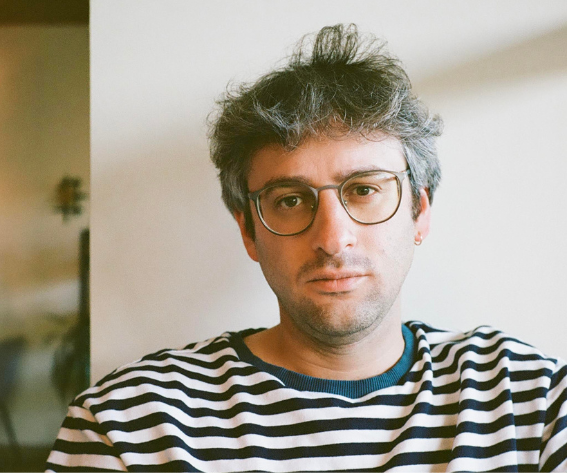As if to mirror the quality of the films hitting cinemas these months, January was really strong in terms of competition here at TMFF. We had some amazing contenders to pick from, but in the end, the biggest award went to OBOLUS, a film that delves in afterlife myths. We had a chat with winning director Kim Fabienne Hertinger to find out more about her work and her movie.
JL: Congratulations for your great work, Kim! How has OBOLUS been received so far?
KFH: Many thanks – also on behalf of the entire OBOLUS team! We are delighted with the awards and the recognition. OBOLUS was filmed in Germany in 2023 and premiered in early 2024. Since then, we have already travelled to several national and international festivals. It’s not easy material and at the beginning the viewer knows just as little about what’s going on as the protagonist. Only as the film progresses we learn where the journey is literally going. It was very exciting for me to see how and if the story works for the audience. Despite the difficult subject matter, we have mostly received a positive response so far, which makes me very happy.
JL: What was the inspiration behind taking Greek mythological elements and transposing them to a modern context? I think you mentioned Yorgos Lanthimos as one source?
KFH: I love the films of Yorgos Lanthimos. He has his very own narrative style and visual language. For the film ‘The Killing Of A Sacred Deer’ (2017), he dedicated himself to the story of Iphigenia and brought it into the modern age. I was very fascinated by this because he didn’t bother to explain the mythology behind it in great detail. A courageous, but completely correct decision. It inspired me and I thought about whether this would also work for a short film.
JL: What we also loved was the almost positive outlook on the situation that the two characters display – in stark contrast with the melodrama we usually see in such contexts. How did you decide to go for that?
KFH: The whole film is a journey and is ultimately also about a journey. When you embark on a journey, especially when it leads into the unknown, it is associated with many feelings. Curiosity, a thirst for adventure and sometimes fear. Our protagonist doesn’t even know what he’s getting himself into when he gets into the car with his passenger. I wanted to bring everything as close as possible to his feelings. The viewer only finds out what is actually going on at the same time as him. That’s why I decided not to make a pathetic melodrama, but a kind of road movie that even has room for a pinch of humour.
JL: The story is definitely very heartfelt – is it rooted in something personal for you?
KFH: Yes, I was confronted with death in my family environment several times within a few years. I’ve never been a person who liked going to cemeteries, as I often find the gravesites too impersonal. I preferred to visit the places that people liked to visit when they were alive or where they lived. I felt much closer to the deceased there. As most people don’t die at home these days, I imagined that the soul of the deceased would return to the places they loved. This is how the basic idea of OBOLUS came about.
JL: Where did you shoot the film? It looks really beautiful!
KFH: We shot the film in the Bavarian Forest. The Bavarian Forest is a low mountain range about 100 kilometres long on the border between Germany and the Czech Republic. I knew this region from a few holiday trips. When it came to bringing the story of the ferryman into the modern day, the boat quickly turned into a car and the river into a deserted country road. The nature and conditions in the Bavarian Forest were perfect for this. We even had the opportunity to shoot our key scene at sunrise on the ‘Großer Arber’ mountain at an altitude of 1,456 metres. That was a very impressive experience!
JL: You won both the Director and the Screenplay awards – congratulations! Which was more challenging – coming up with the story, or bringing it to life?
KFH: Thank you very much! The first drafts of the story were created back in 2019, but we weren’t able to realise the project due to the coronavirus pandemic. I used the time to fine-tune the story. In the end, there were a number of variations on the story with different characters, courses and endings. In collaboration with the German broadcaster ‘Bayerischer Rundfunk’, which co-produced the film, we then decided on this variant. The two actors Deryl Kenfack and Sandro Di Stefano were quickly found and so I was able to adapt parts of the script to the real people, which gave the film even more depth and credibility. I love scriptwriting and writing. Here I can take all the freedom I want and try out different things. I also enjoy directing, but it’s mostly about realising the elaborate pre-planning and staying on schedule. Fortunately, thanks to my great team, I had the opportunity to try out different things. Everyone was very committed and also contributed their own ideas, which makes the film a real collaborative project that ultimately bears several signatures.
JL: Any projects you’re working on at the moment?
KFH: I’m currently working on my feature film debut. This time it’s moving away from mythology and towards a historical theme. The script is as good as finished and we are currently looking for a producer to help us realise it.
JL: Thanks so much for your time, Kim. We look forward to seeing more of your projects here at TMFF!
KFH:Thank you very much! It was a great pleasure!









Leave a reply